Breaking
- MENU

President Trump's decision on Jerusalem
Note: US President Donald Trump’s decision of 6 December 2017 to recognize Jerusalem as the capital of Israel has evoked nearly unanimous international condemnation. The following day 14 out the 15 UN Security Council members condemned Trump's decision and in a similar move on 21 December the UN General Assembly adopted a resolution condemning the Trump's move by a vote of 128 to 9 with 35 abstentions and 21 absences. The US embassy building in Jerusalem was inaugurated on 14 May 2018. The media reaction to the controversy is reproduced here. Editor MEI@ND
*
Al Jazeera, Doha, Opinion, 5 December 2017
Trump’s dangerous Jerusalem gambit
In the past, the US Congress passed several laws in favour of Israel that infringe on the executive branch's constitutional authority over foreign policy. But consecutive presidents have consistently opposed these laws and claimed presidential waivers to postpone their implementation. The Jerusalem Embassy Act (1995) was one such example. If Trump goes through with the move, the US will become the first country to have its embassy in Jerusalem. This will overturn decades of an international consensus on the status of the highly contested city. If the US president is committed to moving the US embassy to Jerusalem, there is, however, a much easier and acceptable way: The Trump administration can officially accept the two-state solution. Unfortunately, it appears that Trump is choosing war over peace. For the full text
Bloomberg, New York, Opinion, 6 December 2017
Trump's Move Frees Palestinians to Focus on Peace, Not Jerusalem
The Organization of the Islamic Conference called Trump's plan to recognize Jerusalem an act of "naked aggression." The State Department has warned recognition will bring violence. But official American neutrality on Jerusalem has not stopped Palestinian leaders from exercising a riot veto before. Indeed, neutrality has created a moral hazard. None of this is to say the Palestinians do not have real grievances. They do. Palestinians still live under occupation in the West Bank and blockade in Gaza. But it does show that Western sensitivity on Jerusalem has allowed Palestinian leaders to weaponize the issue. And that's the real danger of sticking to the policy of Jerusalem neutrality. It feeds a Palestinian illusion: With enough patience and rage, one day the Jews will be evicted from their eternal capital. That's not going to happen. And as more and more Arab states come to rely on Israel in the regional war against Iran and its proxies, this fact is becoming more visible to the rest of the region. For the full text
Council on Foreign Relations, New York, Backgrounder, 6 December 2017
What’s At Stake with the U.S. Recognition of Jerusalem?
Israel considers the “complete and united Jerusalem” its capital, but Palestinians claim East Jerusalem for the capital of their future state. Trump is following through on a campaign promise that was a priority of some American evangelical and Jewish groups. Israel captured East Jerusalem in 1967 and subsequently annexed it. In 1980, Israel’s parliament designated the united city as Israel’s capital. While Israel controls the city, the Oslo Accords stipulated that Jerusalem’s disposition would only be decided on in permanent-status negotiations. Palestinians view U.S. recognition of Jerusalem and an embassy move as a thumb on the scale of future negotiations, validating Israeli efforts to establish its claims in the absence of talks. Regional powers have already registered strong protests. Public opposition to U.S. recognition of Jerusalem could also constrain Saudi Arabia, which has quietly been pursuing relations with Israel; the two have a common interest in containing Iran’s regional influence. Analysts say that al-Qaeda and the self-proclaimed Islamic State could use the move to boost their recruiting pitches. For the full text
The Wall Street Journal, New York, Opinion, 6 December 2017
The Reality of Jerusalem
President Trump honoured a campaign pledge on Wednesday when he recognized Jerusalem as the capital of Israel. The decision is hardly the radical policy departure that critics claim, and Mr. Trump accompanied it with an embrace of the two-state solution for Palestine. Mr. Trump called his decision on Wednesday “a recognition of reality,” and he’s right. Yet official U.S. policy is that both Israel and the Palestinians must agree on the future status of Jerusalem, since the Palestinians claim the city as their capital too. If the movement of an American Embassy that was signalled more than 20 years ago is enough to scuttle peace talks, then maybe the basis for peace doesn’t yet exist. For the full text
The Hindu, Chennai, Editorial, 8 December 2017
Capital Crisis - on US recognizing Jerusalem as Israel’s capital
US President Donald Trump’s decision to recognize Jerusalem as the capital of Israel, despite warnings at home and abroad, will worsen the Israel-Palestine conflict. Even though there is a Congressional resolution in the U.S. urging Washington to relocate its embassy from Tel Aviv to Jerusalem, previous American Presidents avoided doing so given the legal, ethical and political implications of the issue, besides their commitment to a negotiated two-state settlement. By breaking with this consensus, Mr. Trump has in effect endorsed the Israeli claims to East Jerusalem. The Jerusalem gambit risks triggering another cycle of protests and repression in the Occupied Territories. Jerusalem was not part of Israel in the original 1947 UN plan to partition Palestine. It was supposed to be ruled by an international trusteeship. Trump has undermined the U.S.’s position as a neutral broker in Israeli-Palestinian talks. For the full text
The New York Times, Editorial, 15 December 2017
Donald Trump Seems Confused About Jerusalem
President Donald Trump announced on Dec. 6 that he was formally recognizing Jerusalem as Israel’s capital, tossing aside 70 years of careful American neutrality and infuriating Palestinians. More likely, with the president having made a typically grandiose and poorly thought-through political gesture to domestic supporters. The White House conceded another piece of leverage on Friday and again angered Palestinians for no apparent purpose. In this fraught moment, with dwindling options, the first task for the Palestinian leadership and others is to discourage violence that could engulf the region at great cost to all sides. If Palestinian and European leaders want to keep open the possibility of a two-state solution, they should reaffirm the importance of deciding Jerusalem’s future in negotiations, with the Palestinian capital in East Jerusalem. For the full text
Chicago Tribune, Chicago, Editorial, 24 January 2017
Move the US Embassy to Jerusalem? Now’s not the time
Trump's quest to recharge U.S.-Israeli ties is the right tack, particularly after the prickly relationship Barack Obama had with Prime Minister Benjamin Netanyahu. Israel remains America's most loyal and stable ally in the volatile Middle East. For Palestinians, the embassy issue is a big, thick red line. Saeb Erekat, the chief Palestinian negotiator, told The New York Times that moving the embassy to Jerusalem would doom any hope of a two-state solution and might ignite new waves of violence. For the full text
Qrius (formerly The Indian Economist), New Delhi, Featured, 31 January, 2017
Moving the US embassy to Jerusalem: A ‘move’ against international peace?
The relocation of the U.S. embassy has been a debate for over twenty years. Since 1995, the law for this purpose is brought to the president for review every six months. Palestinian leaders remain adamant that the embassy move would not only violate international law, but would tarnish any hope of peace. Israel has transformed Jerusalem from a place of ethnic and religious diversity to a Jewish city. Since 1948, it has aimed to reduce the amount of Palestinians to increase the Jewish population. The abuse the Palestinians have endured has led to about eighty-two per cent of them living below the poverty level in comparison to only twenty-eight per cent of the Jewish community. America for years, has been a country that advocated peace and neutrality, and would discard this by deciding to move its embassy to Jerusalem. For the full text
Ha'aretz, Tel Aviv, Editorial, 25 February 2018
US Embassy Move to Jerusalem is no cause for celebration
Although Israelis have long awaited such recognition, in light of the nadir in relations between Israel and the Palestinians, there is absolutely no reason to celebrate. Moving the embassy to Jerusalem could have been a cause for great celebration, had it come at the end of successful negotiations, as a symbol of the end of the Israeli-Palestinian conflict. It should have been the cherry on top after a successful conclusion of a peace agreement based on territorial partition and the establishment of a Palestinian state with its capital in East Jerusalem, alongside Israel whose capital is West Jerusalem. However, as it stands now, it is very doubtful that this move would be good for Israel. It will certainly not contribute to the United States’ image as a “honest broker.” If Trump cares about Israel’s welfare, a better 70th birthday present would be a peace plan that does right by both nations. For the full text
Palestine-Israel Journal, Jerusalem, Featured, January - April 2018
President Trump’s Decision on Jerusalem Lacks International Legitimacy and Strategic Vision
President Trump introduced his decision as an effort to make an unprecedented act to advance the peace process. Yet he did not present a strategic comprehensive plan to end the Israeli occupation and resolve the conflict. He failed when he spoke about Jerusalem as the capital of Israel and made no clear mention of the Palestinians’ national right to Jerusalem. Noticeably, President Trump did not say clearly what he meant by “Jerusalem” but said that his statement didn’t define the borders of Israeli sovereignty in Jerusalem, and that it would not affect the outcome of the negotiations on the final status issues which include Jerusalem, or change the status quo in the holy places of Jews, Christians, and Muslims. President Trump’s announcement on Jerusalem, if not followed by an intensive, serious effort on the part of the U.S. to change the attitude and policy of Israel vis-à-vis the occupied territories, will only open the door wider to making the current situation permanent. For the full text
The Washington Post, Washington D.C, Global Opinions, 8 May 2018
What everyone’s getting wrong about the U.S. Embassy move to Jerusalem
Moving the U.S. Embassy to a location in West Jerusalem is correct and reasonable. West Jerusalem has served as Israel’s capital since the founding of the state, and no plausible two-state map would change that. Our embassy’s presence in the city reinforces the legitimacy of historic Jewish ties to the city, which are too often denied by Palestinians. Nothing about our embassy’s location there would prevent the emergence of a shared city with two capitals as part of a two-state solution. President Trump’s decision has opened the door for much more frank discussion about an eventual Palestinian capital, and U.S. Embassy to Palestine, in East Jerusalem. Long a taboo in both Israeli and American politics, the ice is beginning to break. Triumphalists in Israel and the United States think that the embassy move means that Israel has “won” the conflict. However, the inexorable demographic dilemmas of how Israel can maintain both its Jewish and its democratic character while controlling all of the West Bank and its Palestinian population have not changed at all. Eventually, a future Israeli government will have to make some wrenching choices. The U.S. Embassy in Israel belongs in Jerusalem. But the next day, surprisingly little about this conflict will have changed. For the full text
Las Vegas Review Journal, Las Vegas, Editorial, 12 May, 2018
Donald Trump follows through on promise to move U.S. Embassy to Jerusalem
Donald Trump has his critics aghast because he has the temerity to actually follow through on his campaign promises, particularly when it comes to foreign policy. His blunt version of diplomacy has little in common with the more staid and traditional approach preferred by his predecessors and those in the Washington establishment. Critics have assailed the president for jeopardizing the peace process in the Middle East. Would they prefer the same strategies that have produced failure for decades? In fact, Jerusalem has always been Israel’s capital. For the full text
The Jerusalem Post, Jerusalem, Opinion, 13 May, 2018
Game Changer
Seventy years after the State of Israel was born the US is not only recognizing Jerusalem’s integral importance to Israel but acting on that recognition. This sends out several important messages, not least of which is the importance of not giving in to terror. The US Embassy move rights an historic wrong and makes clear the terms of any future peace process between Israel and the Palestinians. It removes from the agenda the question of Israel’s status regarding Jerusalem. Instead of staying away from the embassy opening, all those who truly seek peace should see this as the start of a new era in the ancient city – one in which new possibilities for peace can be explored. Far from endangering the peace process, the US Embassy move could further it. For the full text
The Independent, London, Editorial, 14 May 2018
Trump moving the US embassy to Jerusalem may cause a chain reaction in the Middle East that he can’t control
The decisions to relocate the US embassy in Israel to Jerusalem, and to recognize the city as the capital of the Israel is a highly provocative move. Already dozens of people have died as a direct, immediate consequence of this move. The best that can be said for Mr. Trump’s Jerusalem policy is that it somehow shocks the Palestinians towards a lasting settlement, and with that might come a wider lowering of regional tension. The idea is that it is such an act of naked partisanship towards Israel that the Palestinians become so dispirited that they beg the Americans and Israelis to offer them any kind of “peace” deal – an “unequal treaty” under duress. Yet that has not been the lesson of history so far: occupation, illegal settlements, the wall, trigger-happy Israeli soldiers – all have merely pushed peace further out of sight. There is now open talk of a third intifada. So it is difficult to envisage that the security of the United States or of Israel will be much improved by the embassy move. For the full text
The New York Times, Opinion, 14 May, 2018
Trump’s Failure in Jerusalem
The day the United States opened its embassy in Jerusalem is a day the world has longed for, because of what it was supposed to represent: the end of a seemingly endless conflict. But President Trump delivered the embassy as a gift without concession or condition to the Israeli government of Benjamin Netanyahu, and as a blow to the Palestinians. The world did not witness a new dawn of peace and security for two peoples. Unilateral action, rather than negotiation and compromise, has served the purposes of successive right-wing Israeli governments. The possibility of peace has continued to recede, and Israel’s democratic character has continued to erode under the pressure of a long-term occupation of millions of Palestinians. Mr. Trump has now lent America’s weight to this maximalist Israeli strategy. Mr. Trump’s announcement swept aside 70 years of American neutrality. But the contrast on Monday, between exultation in Jerusalem and the agony of Palestinians in Gaza, could not have been more stark. For the full text
Council on Foreign Relations, New York, 15 May 2018
The Damage Done in Jerusalem
When President Donald J. Trump announced in December 2017 that he was moving the U.S. Embassy in Israel from Tel Aviv to Jerusalem, members of his administration argued forcefully that it would advance the cause of peace. They described it as a “clarifying moment” that was merely acknowledging the reality of Jerusalem. Yet the president’s decision was devoid of any recognition of the Israeli political context in which there is little, if any, interest in a two-state solution and he grossly miscalculated the likely Palestinian response. Both of these elements have conspired to make negotiations even less likely than before. For the full text
The Indian Express, Mumbai, Editorial, 17 May 2018
Gaza and Jerusalem
The decision to recognize Jerusalem as Israel’s capital, and the widely publicized celebration of the new embassy, has only drawn greater attention to the killings in Gaza, especially since both events took place almost simultaneously. Rather than attempt to soften Israel’s stand, especially its blockade of Gaza, the Trump administration has only deepened the anger in the region and increased fears of a greater number of Palestinians taking to extremist, violent tactics to achieve political ends. For the full text
_______________________________________________________
As part of its editorial policy, the MEI@ND standardizes spelling and date formats to make the text uniformly accessible and stylistically consistent. The views expressed here are those of the author and do not necessarily reflect the views/positions of the MEI@ND. Editor, MEI@ND: P R Kumaraswamy

Rashmi is an intern at MEI@ND and completed the Masters program in International Relations at Jawaharlal Nehru University.

POLITICAL EGYPT Prime Minister Modi expected to visit Egypt, meet President el-Sisi: Envoy .....

POLITICAL BAHRAIN India-Bahrain relations in a new phase: Sushma Swaraj Manama, Sunday, 15 .....

INDIA WATCH, JULY 2018, ISSUE NO. 102 POLITICAL IRAN US tells India, Chin.....

INDIA WATCH, JUNE 2018, ISSUE NO. 101 POLITICAL EGYPT India-Egypt economic ties impr.....

INDIA WATCH, MAY 2018, ISSUE NO.100 POLITICAL IRAN Iran urges for restraint in Ja.....

POLITICAL EGYPT Egypt signs agreement to join International Solar Alliance Cairo, Sunday, 1.....

POLITICAL ISSUES IRAN 1.Senate Chairman meets Rouhani; discusses Kashmir issue Islamabad, Monday,.....

POLITICAL ISSUES ARAB LEAGUE 1.Pakistan’s role in regional peace appreciated by Arab league Is.....

POLITICAL ISSUES BAHRAIN Bahrain health minister visits Pakistan Islamabad, Sunday, 8 .....
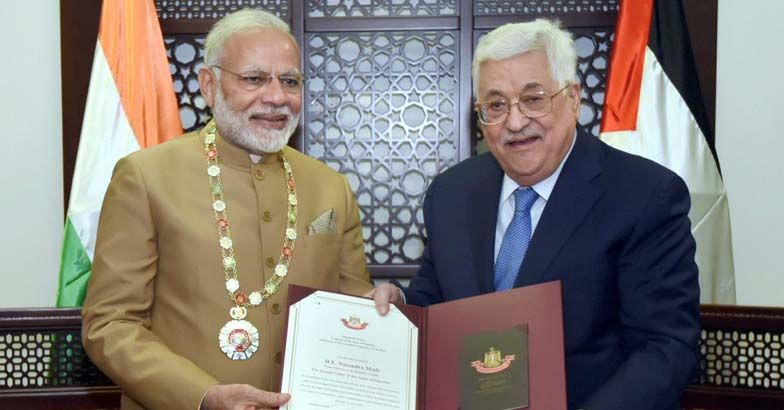
On February 10, 2018, Prime Minister Narendra Modi visited Palestine, nine months after Palestinian President .....

POLITICAL ISSUES EGYPT The Grand Mufti of Egypt visited Pakistan Islamabad, Thursday, 22 March 2018.....


POLITICAL ISSUES QATAR Pakistan, Lebanon discuss bilateral ties Islamabad, Tuesday, 5 December 2017 .....

IRAN Defence Minister of Iran meets Pakistan’s Minister for Defence Engineer Islamabad, Saturday,.....

POLITICAL ISSUES LEBANON Pakistan, Lebanon discuss bilateral ties Islamabad, Tuesday, 2 January 2018.....

POLITICAL ISSUES EGYPT Six arrested Pakistanis released by Egypt’s court Islamabad, Wednesday,.....

Pakistan Watch, August Issue 2018, No. 93, Divya Malhotra POLITICAL ISSUES TUNISIA Pakista.....

Note: The Joint Comprehensive Plan of Action, commonly known as the Iran Nuclear Deal was .....
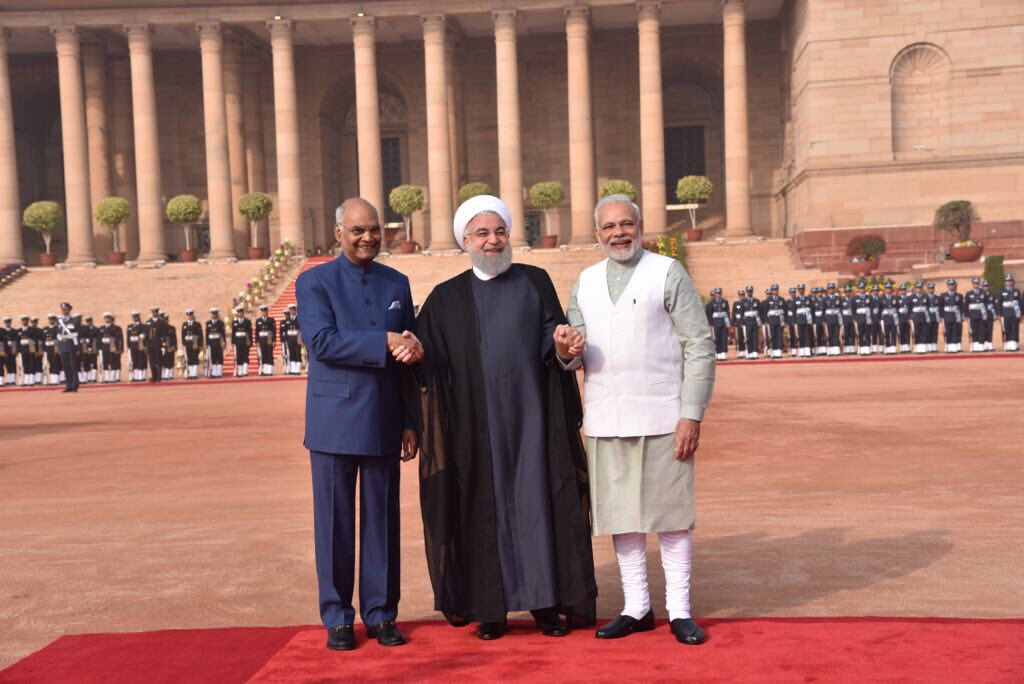
Note: During 15-17 February 2018, Hassan Rouhani, the President of the Islamic Republic of India, visited Indi.....
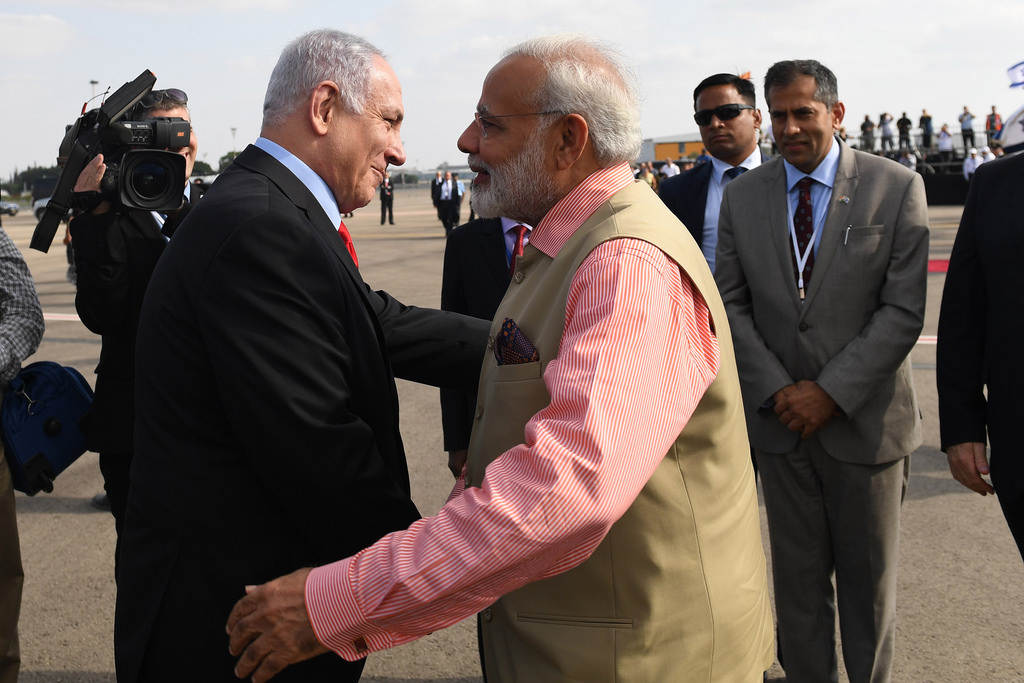
Note: Prime Minister Benjamin Netanyahu of Israel visited Israel during 14-16 January 2018. This was the secon.....

POLITICAL IRAN China urges Salvaging of Iran nuclear deal Beijing, Wednesday, 9 May 2018 China has.....

INDIA WATCH, JULY 2018, ISSUE NO. 102 POLITICAL IRAN US tells India, China to end o.....
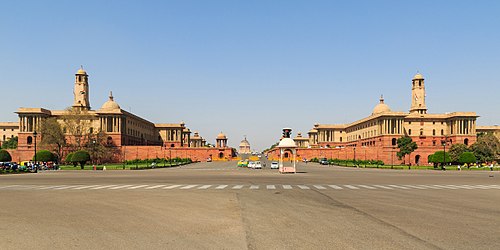
BILATERAL ISSUES BAHRAIN Visit of External Affairs Minister to Manama, Bahrain (July 14-15, 2018), New D.....

ECONOMIC KUWAIT Kuwait calls for increase in investment from China Kuwait City, Tuesday, 20 March 201.....
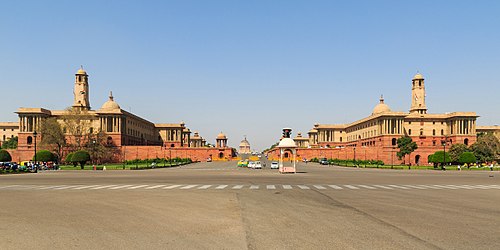
BILATERAL ISSUES BAHRAIN Cabinet approves MoU between India and Bahrain on cooperation in the field of H.....

INDIA WATCH, JUNE 2018, ISSUE NO. 101 POLITICAL EGYPT India-Egypt economic ties improving: out.....

POLITICAL ISSUES IRAN China sets up traffic control area Beijing, Thursday, 1 February 2018 China .....
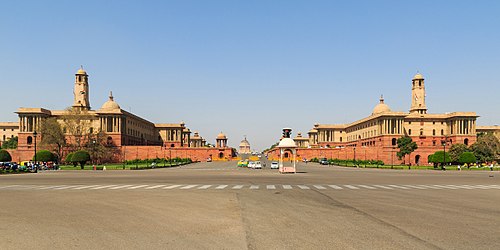
BILATERAL ISSUES IRAN External Affairs Minister’s meeting with Iranian Foreign Minister, New Delhi.....

INDIA WATCH, MAY 2018, ISSUE NO.100 POLITICAL IRAN Iran urges for restraint in Jammu and Ka.....

POLITICAL ISSUES IRAN China calls for cherishing Iran Nuclear Deal Beijing, Saturday, 13 January 2018.....
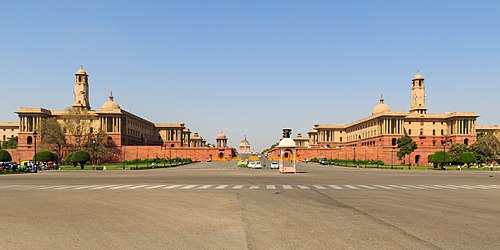
BILATERAL ISSUES IRAN Cabinet approves MoU between India and Iran on the establishment of an expert grou.....

POLITICAL EGYPT Egypt signs agreement to join International Solar Alliance Cairo, Sunday, 11 March 20.....

POLITICAL ISSUES IRAN Iran and China to boost their military relations Beijing, Tuesday, 12 December.....
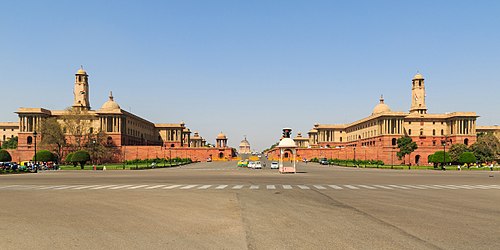
(Monthly Digest of Official Indian Statements on Middle East) BILATERAL ISSUES EGYPT Mr. Sameh Hassan.....

POLITICAL IRAN Iran president meets with religious scholars in Hyderabad Hyderabad, Friday, 16 Februa.....

POLITICAL ISSUES EGYPT China-Egypt vows to promote comprehensive strategic partnership Sharm el Sheik.....
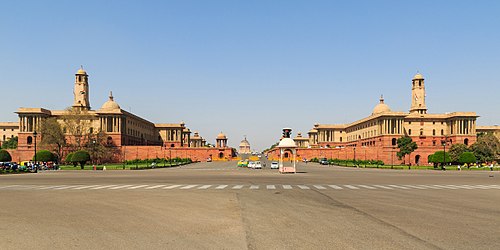

POLITICAL BAHRAIN Rahul Gandhi in Bahrain New Delhi, Tuesday, 9 January 2018 Addressing NRIs in Ba.....
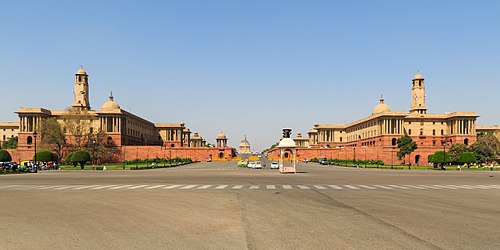
(Monthly Digest of Official Indian Statements on Middle East) BILATERAL ISSUES IRAN Launch of Admissi.....

POLITICAL ISRAEL Ministry of Defence scraps $500 million Israeli missile deal, wants DRDO to make in&nbs.....

1 January 2018 POLITICAL EGYPT India to set up IT centre in Egypt's Al Azhar University.....

POLITICAL ISSUES JORDAN China’s Foreign Minister Wang Yi meets Jordanian Foreign Minister Ayman Sa.....
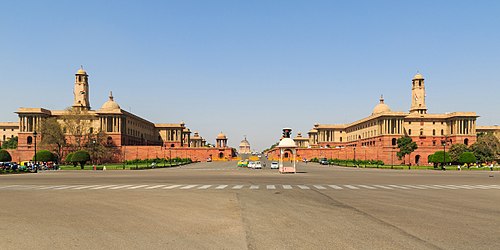
(Monthly Digest of Official Indian Statements on Middle East) BILATERAL ISSUES .....

POLITICAL IRAN India defends diplomatic ties with Iran in talks with Rex Tillerson New Delh.....

POLITICAL ISSUES EGYPT 1) Egyptian Ambassador talks about bi-lateral ties Beijing, Sunday, 27 August .....

POLITICAL ISRAEL India to bid for Israel oil-and-gas exploration blocks New Delhi, Tuesday, 5 Septemb.....

POLITICAL ISSUES EGYPT 1. India, Egypt to support each other’s candidates for UNESCO, ICJ .....
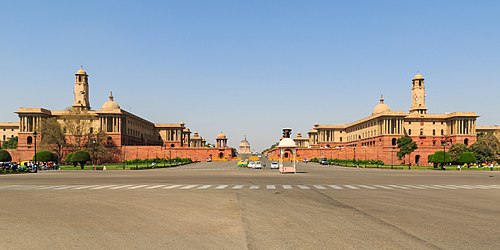
BILATERAL ISSUES IRAN 1. 6th Meeting of Joint Committee on Ports and Maritime Cooperation between t.....

POLITICAL ISSUES IRAN 1. Cabinet approves Bilateral MoU between India and Iran New Delhi, Wednesday, .....
